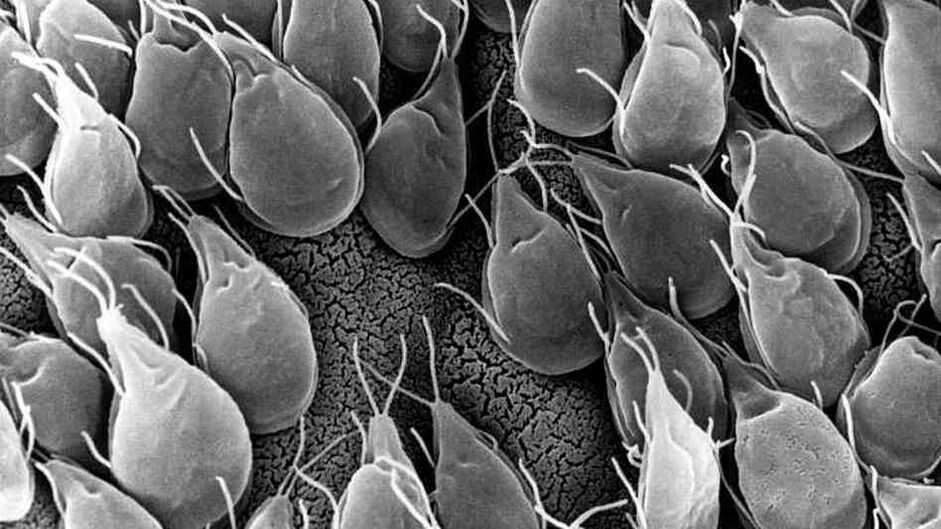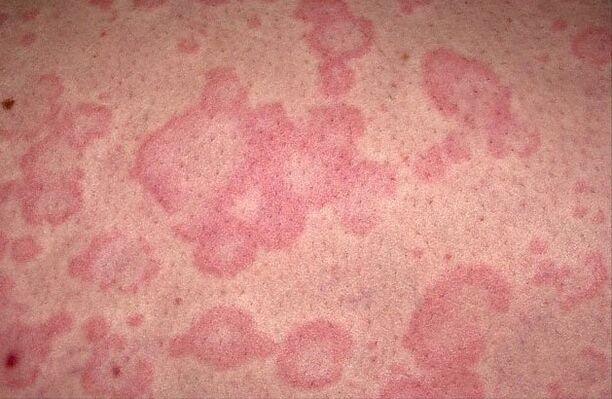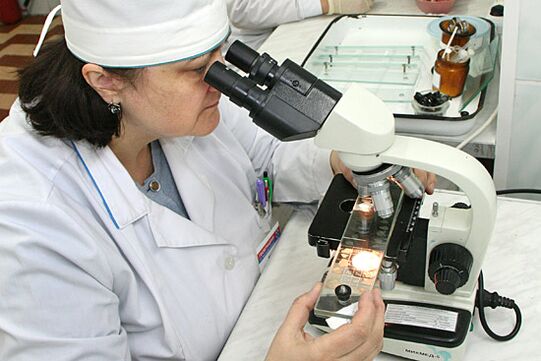Parasites release large amounts of toxins throughout their lives. These substances are the strongest allergens. When parasites form in the body, itching, hives and skin rashes occur in humans.
Waste from various parasites is believed to be the strongest allergens. If the patient is allergic to dust, wormwood, pets, then the risk of developing anaphylactic shock is high.
If any allergic reaction occurs, a person should undergo complex medication. Produced using a new generation of antihistamines. Even drug treatment is supplemented with immunomodulators, anthelmintic and multivitamin drugs.
What types of parasites cause allergies?

Allergies and parasites are closely linked. Giardia is the most common cause of allergic reactions in humans. These worms belong to the class of protozoa. Giardia enters the body with poorly processed food.
Another person can become infected when they come in contact with parasite carriers. The most common carriers of Giardia are insects and cockroaches. Also, if a person eats raw fish, he can get Lyabmliya.
Different types of helminths can also cause allergies. These include roundworms, whipworms, toxocariasis, opisthorchiasis, and echinococci. If a person eats poorly processed meat or fish, these parasites enter the body. Helminth infestation can also be caused by poor hygiene and the use of raw chicken eggs.
Doctors say that if a person has allergies, the parasites have already started to multiply. Allergy symptoms may not appear immediately after the invasion. The severity of clinical manifestations will depend on the location of the parasites. For example, if parasites are present in the intestines, bronchi, or pancreas, the intensity of allergic reactions increases.
Parasites that cause allergies cause a decrease in immunity. This is due to the fact that the products of their vital activity are carried throughout the body along with the blood. Parasites often cause secondary infections and autoimmune diseases.
It has been found that the production of certain enzymes slows down when parasites form in the gastrointestinal tract.
As a result, a person develops an immune deficiency. In this case, allergic reactions can even be accompanied by hair loss.
How allergies manifest themselves in parasitosis
What are the symptoms of worm infestation? Allergy to worms can manifest itself in different ways. Everything will depend on the type of worm and the individual characteristics of the person.
Doctors say that allergies to parasites also manifest themselves as allergies to wormwood, pets or drugs. The first signs of an allergic reaction:
- Eczema.
- itching. It can be paroxysmal in nature, ie it disappears from time to time.
- Skin peeling. The skin of the face or limbs is usually peeled off.
- Swelling. This symptom develops when a person is prone to allergic reactions.

With timely elimination of allergies, the patient develops bronchospasm. It poses a serious threat to life. If you do not give an ambulance to a person, he may suffocate.
Eczema, itching and other signs of an allergic reaction may disappear over time. In addition to these symptoms, a person has a sharp decrease in body weight. Some types of helminths, such as Giardia, on the contrary, cause excess weight.
Even with the appearance of allergic reactions, a person has an unpleasant odor in the mouth. Indicates that parasites cause the development of pathologies of the digestive system. There is a high probability of changes in the pH level in the stomach. If you do not take urgent measures, the patient may develop chronic gastritis or diabetes mellitus.
If the patient is intolerant to wormwood and other allergens, the intensity of clinical manifestations with helminthic infestations increases significantly. In this case, a serious allergic reaction develops, accompanied by symptoms such as:
- I have a cold. This is accompanied by a general disorder. As a rule, the patient experiences drowsiness and loss of strength.
- An increase in body temperature. With the development of severe allergic reactions, body temperature rises to 40 degrees.
- Intoxication. It manifests itself as dyspeptic events. The patient usually experiences vomiting, diarrhea, or nausea. These symptoms are accompanied by paroxysmal pain of a cutting nature in the abdomen.
- Red rash. Covers the entire surface of the skin.
If you do not stop a severe allergic reaction, then the patient develops an asthma attack. The probability of developing various side effects is also high. It has been found that helminthic invasions significantly increase the risk of developing chronic allergies.
In addition, there is a possibility of developing autoimmune and neurological diseases.
Diagnosis and treatment of allergies

If symptoms of helminthic infestation occur, a thorough examination is recommended. You must first pass a stool test. If a parasite is found in the stool, the doctor immediately selects the appropriate medication.
Sometimes larvae are not found in the stool. In this case, the patient needs a general blood test. With its help, the disease is easier to detect. If a person has parasites in their body, tests can show an increase in the number of eosinophils and an accelerated ESR. If necessary, diagnostic measures are completed by ultrasound and X-ray examination.
After that, the doctor should get acquainted with the patient's medical history and choose the appropriate medication. Initially, symptomatic treatment is carried out. Needed to stop allergic reactions. You can use antihistamines to get rid of allergies.
The period for receiving such funds is from 1 to 14 days. If necessary, the course of treatment is repeated.
After removing the parasites from the body, a person is prescribed immunomodulators and multivitamin complexes. They are needed to minimize the risk of recurrence of the disease and strengthen the immune system.

















